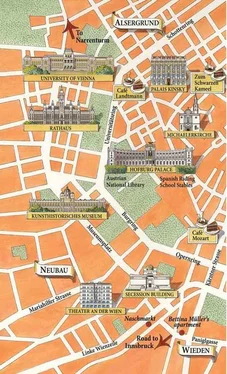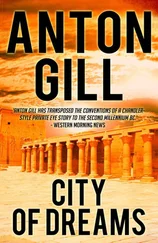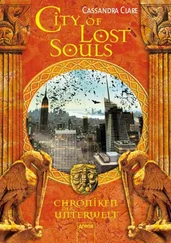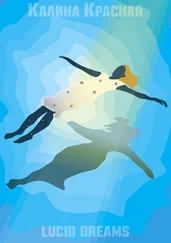“You will see Pollina tomorrow.” Nico reached over and patted her hand.
“Yes, but I’m leaving for Vienna in the afternoon,” Sarah reminded him. “I just want to get as clear a picture as possible of how she’s responding to the last round of medications so I can make a convincing case to Dr. Müller.”
Pollina Rutherford, a thirteen-year-old blind musical prodigy of astounding talent, had moved to Prague from Boston a year earlier. The girl had never been of vigorous health and had lately been plagued by a series of lung infections. In the past several months, these had become much more serious. Sarah had frantically researched everything related to Pols’s illness, a rare autoimmune disorder that seemed to be caused by a malfunction on chromosome 20. When she heard about a nanobiologist at the University of Vienna who was developing a promising new drug targeting mutations in chromosome 20, she had contacted her about enrolling Pols in a trial. And when Dr. Müller had turned them down, Sarah had dropped everything to make this trip to Vienna to change the woman’s mind.
It wasn’t easy for Sarah to explain her emotions where Pollina was concerned. She had begun tutoring her when she was in high school and Pols was only four, though it was clear from the beginning that in many ways it was the younger girl who was the older soul. Their backgrounds were entirely different. Sarah had grown up in working-class South Boston, had lost her dad when she was nine, had blazed through high school, college, and grad school, all the way to, at age twenty-five, a PhD in neuromusicology on a mixture of ambition and passion. Before coming to Prague, Pollina had spent most of her young life inside a Back Bay mansion, cared for by a devoted but eccentric Mexican housekeeper and left largely to her own devices by her wealthy dilettante parents. But music had erased the disparity of their ages and their experiences. Music, and a sort of kindred fierceness they recognized in each other.
Cocktails arrived at the table. Sarah’s came garnished with a large wheel of orange slice, and the olive in Nico’s glass was pierced with a giant plastic sword.
“I ordered you the Catheratini,” Nico explained. “The orange is meant to symbolize the wheel that the unfortunate Saint Catherine was tortured upon, though this is not explained on the menu and perhaps the symbolism is lost on some. My Barbatini, you may note, contains a sword.”
“I’m going to go out on a limb here and guess that Barbara was decapitated.”
“By her own father, poor dear. Admit. Impiety tastes delicious. I’m glad you like it, as I own a share in this place. A side venture of mine. I thought it would be amusing, but I fear that, like everything else, it will end by being either a bore or a heartbreak.”
Sarah put down her Catheratini. She had been so caught up in her concern over seeing Pols that she was only now noticing that the little man didn’t look particularly well himself.
But Nico waved off her questions with a hand, attributing his low spirits to the modern climate of political correctness that inhibited flirtation with the miniskirted female waitstaff, and ordered a bottle of Roudnice red.
“And so, you go to Vienna tomorrow,” he continued. “To bully the nanobiologist into helping our Pollina?”
“I think this Dr. Müller is just being cautious”—Sarah leaned forward—“because Pols’s immune system is very compromised. Maybe she doesn’t want to take a risk and potentially skew her results.”
“And you have never taken no for an answer.”
“I am not leaving Vienna until that bitch says yes.” Sarah smiled. Nico raised his glass to her.
“Oksana, too, thinks targeting the chromosome itself might be helpful.” Nico sighed. Nico’s wife, Oksana, a nurse, was overseeing Pols’s care. “But these are all drugs of the future, and, as you know, I have much more experience with drugs of the past. I, too, want to make an experiment.”
“Are we talking alchemy here?” Sarah raised an eyebrow. “I am not letting you give Pols ground-up narwhal horn.”
“Nonsense.” Nico poured himself another glass of wine. “I haven’t been able to get my hands on that for two centuries.”
Though he appeared to be in his mid-forties, Nico insisted to his confidants that he was four hundred years old, rendered immortal by the astronomer Tycho Brahe in 1601 in an alchemical experiment gone awry. Sarah was never sure what to believe when Nico was around. What was indisputable was that Nico knew a lot about a great number of things, including chemistry. Sarah herself had been the beneficiary of a rather unusual drug he had replicated. She knew what he could do. But this was Pollina. And it wasn’t a game.
“I have found something.” Nico lowered his voice. He looked around the restaurant, then slid an object across the table, wrapped in a napkin. Sarah unfolded it to reveal a book.
The cover featured a cartoon drawing of a white-bearded man dressed in what looked like a green jumpsuit, sporting an enormous Druidic headpiece topped with a crescent moon, and carrying a flaming torch. Behind the Druid, a few badly drawn goats wandered across a hilly background. The sky was lit by a rainbow, across which ran the title: The Every Soul’s Guide to Alchemy! 50 Fun Recipes for Living, Loving, and Levitating!
“We’re joking, right?” Sarah looked up.
“Nay.”
“You want to use this on Pollina?” Sarah flipped the book open and read at random. “‘We must shut off our rational, doubting, linear modal selves and listen to the harmonies contained in the Creator’s majestic dance!’”
“I know,” Nico sniffed. “The usual dreadful hippie twaddle. I was attracted to the cover, which I believe depicts William Price of Llantrisant, whom I knew. A darling man, and quite cheerful, for a Druid. Imagine my surprise when I’m leafing through it, merely to entertain myself with all the drivel, and I find . . .” Nico flipped the pages and pointed.
“‘ The Will to Heal , by Philippine Welser,’” Sarah read. Under the title was a list of ingredients involving a lot of symbols and drawings.
“Whoever put this silly book together,” Nico explained, “decided to throw in an actual alchemical formula. In the author’s acknowledgments I found a sentence thanking the von Hohenlohe family, so I suspect he got it from them. The von Hohenlohes’ castle was conferred on them by Ferdinand of Tyrol, and they have what remains of Ferdinand’s Kunstkammer , which includes Philippine’s book of medicines. The point is, it’s real. It’s an actual recipe of Philippine Welser.”
“Okay, for those of us who lack your colossal scholarship . . . ?”
Nico sighed. “Philippine Welser. The wife of Ferdinand, uncle of Emperor Rudolf II.”
“Oh, God. Not Rudy again.” Tales of Rudolf’s eccentricities were as ubiquitous in Prague as inexpensive beer and marionettes.
Nico, unperturbed, continued on. “An archduke, Ferdinand, married Philippine, a commoner, in secret. She was a talented healer and became famous in the Tyrol as something of a good witch. Most of her formulae were lost, and what has survived is, as I said, in the hands of a very close-lipped family. This is her tonic to incite the process of healing. A sort of spark to the engine. Pollina’s immune system is sluggish. It needs to be awakened.”
“Nico . . .” Sarah growled. Every skeptical fiber of her being was on guard.
“I’m not going to sit here and do nothing,” Nico said sharply. “Alchemy is my talent, and I’m going to use it.”
“Which talents are we using?”
Sarah turned to see Max Lobkowicz Anderson standing behind her chair. Sarah and Max had . . . there wasn’t an easy explanation for it—slept together by mistake, fallen in love, almost gotten killed—during the summer she worked at the museum Max had opened in Prague, which housed his family’s art and artifacts. They had kept up the affair for almost a year after she returned to Boston, until the pressure of maintaining a long-distance relationship while trying to establish a career had overwhelmed Sarah, and she had broken it off. Max, she knew, was now seeing a British historian who was researching a book in Prague. And Sarah? Lately there had been a brief but energetic fling with a tennis player. The tennis player wasn’t Max—nobody was Max—but when it came to relationships, Sarah wondered if hers was more of a serve-and-volley game. She didn’t really have time for long rallies.
Читать дальше












